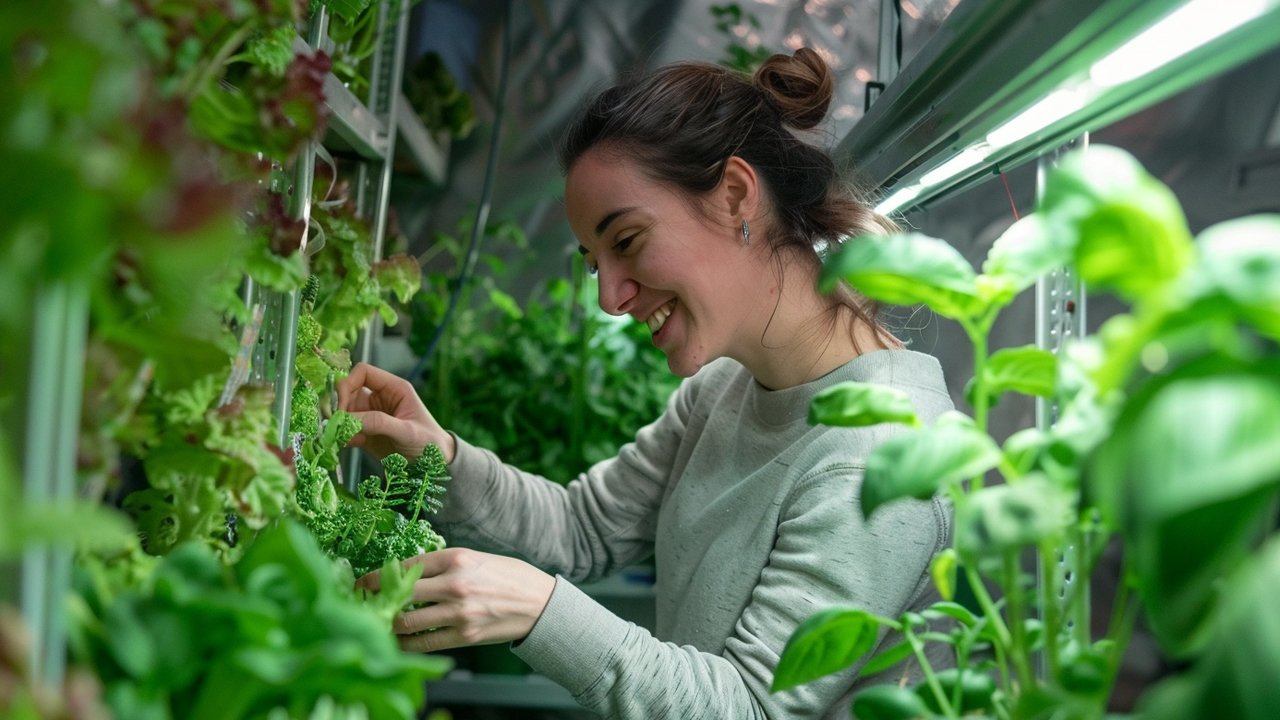
In our world where uncertainty is the only constant, the principles of preparedness are more relevant than ever. For preppers, the goal is not only to survive potential crises but to thrive during and after them.
Hydroponics, the soil-free cultivation of plants, emerges as a superior method for ensuring food security under such unpredictable conditions. This innovative approach conserves resources while maximizing food production, aligning perfectly with the prepper’s need for efficient, reliable, and sustainable food sources.
Hydroponics is an invaluable addition to any prepper’s strategy, offering insights into its efficiency, space utilization, control, and sustainability.
Hydroponics Offers Unmatched Efficiency
The efficiency of hydroponics is a crucial benefit. This method uses significantly less water than traditional gardening due to its recirculating system, where water is reused continuously, with minimal losses to evaporation.
For preppers, the implication is profound: it enables the growth of ample food even in arid regions or situations where water supplies are compromised. Furthermore, plants in hydroponic systems tend to grow faster than those in soil because they have direct access to nutrients and oxygen, which are delivered in precise quantities directly to the roots.
This rapid growth cycle allows for quicker harvesting times, increasing the overall productivity of the food source—a critical advantage in times of need.
Space Maximization is Key in Prepping
Hydroponics dramatically reduces the need for large farming spaces, a key advantage for preppers who may have limited area or need to stay under the radar in dense urban environments.
Systems can be installed in a variety of settings, from basements to rooftops, and can be stacked vertically to enhance yield per square foot. This spatial efficiency ensures that a substantial amount of produce can be grown in a fraction of the space required for soil-based setups.
Such a compact system not only fits neatly into smaller or unconventional spaces but also can be more easily protected from harsh weather conditions and potential security threats, both of which are important considerations in prepping scenarios.
Control Over Growing Conditions
The control provided by hydroponic systems is unmatched and offers significant advantages over traditional farming. In a hydroponic setup, everything from the nutrient concentration to the pH and moisture level can be meticulously managed. This level of control virtually eliminates the unpredictability of traditional soil gardening, where factors such as soil composition, unexpected pests, and diseases can wreak havoc on crops.
For preppers, the ability to produce healthy, nutrient-rich food consistently is a major asset, ensuring that their food supply is less vulnerable to external conditions. Moreover, the indoor nature of many hydroponic systems allows for year-round growing, crucial for maintaining a steady food supply irrespective of seasonal changes or unexpected weather events.
Sustainability and Resource Management
Hydroponics is inherently sustainable, using fewer resources and generating less waste than conventional farming techniques. This aspect is especially appealing to preppers who are focused on minimizing their ecological footprint while maximizing their self-sufficiency.
By reducing dependency on chemical inputs such as pesticides, hydroponics offers a purer, more natural form of food production. It also supports a closed-loop form of agriculture, where the only inputs are water and nutrients, with very little waste produced in the process.
This method not only preserves vital resources but also aligns with the ethical considerations of leaving a lighter touch on the Earth—a principle that resonates deeply within the prepping community.
Hydroponics transcends being merely a method of cultivation; it is a strategic asset in the prepper’s arsenal. It embodies the principles of preparedness and sustainability, providing a resilient approach to food security that is adaptable to various emergencies or disruptions.
Whether it’s a water shortage, limited living space, or the necessity for a controlled environment, hydroponics proves to be a robust solution. By incorporating hydroponics into their preparedness plans, preppers not only enhance their chances of survival in adverse conditions but also position themselves to maintain a quality of life that could extend well beyond mere survival, into thriving in any situation.

